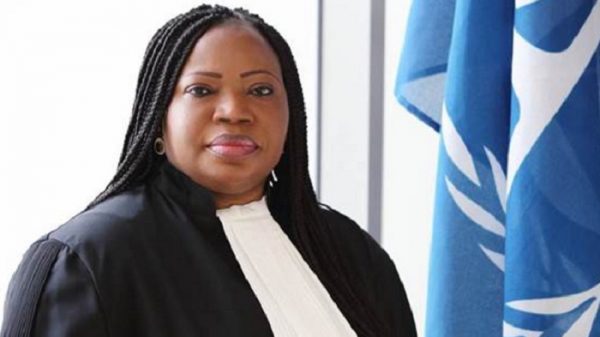ICC prosecutor pledges to uncover truth of Rohingya persecution

- Update Time : Saturday, November 23, 2019
- 226 Time View

International Criminal Court (ICC) Prosecutor Fatou Bensouda on Friday said her investigation will seek to “uncover the truth” and will now focus its efforts on ensuring the pursuit and success of its independent and impartial investigation.
“In doing so, we aim to bring justice to victims and affected communities, and count on the full support and cooperation of States Parties, civil society, and other partners,” she said in a statement following judicial authorisation to commence an investigation into crimes committed against Rohingyas.
On November 14, the Judges authorised an investigation with broad parameters.
“This is a significant development, sending a positive signal to the victims of atrocity crimes in Myanmar and elsewhere,” said Bensouda.
The Office of the Prosecutor of the ICC conducts independent and impartial preliminary examinations, investigations and prosecutions of the crime of genocide, crimes against humanity, war crimes and the crime of aggression, according to the Office of the Prosecutor.
While Myanmar is not a State Party of the ICC, Bangladesh is, and Bensouda welcomed the Chamber’s conclusion that the alleged deportation of civilians across the Myanmar-Bangladesh border, which involved victims crossing that border, clearly establishes a territorial link on the basis of the “actus reus of this crime”– that is, “the crossing into Bangladesh by the victims.”
“I wish to highlight that my Office is not restricted to investigating only the events, persons or groups identified in my Request, or their provisional legal characterisation,” she said.
The Chamber has emphasised that her Office may, on the basis of the evidence gathered during the investigation, extend its investigation to other crimes against humanity or other crimes under article 5 of the Statute, as long as these crimes remain within the parameters of the authorised investigation.
She noted that the Chamber saw no reason to disagree with my assessment that there are no substantial reasons to believe that an investigation into the situation would not be in the interests of justice.
In her July 4, Bensouda sought authorisation to investigate the situation in Bangladesh/Myanmar in the period since October 9, 2016.
Specifically, she requested authorisation to investigate crimes within the jurisdiction of the International Criminal Court (“ICC” or the “Court”), in which at least one element occurred on the territory of the People’s Republic of Bangladesh (“Bangladesh”), and which occurred within the context of two waves of violence, in 2016 and 2017, in Rakhine State on the territory of the Republic of the Union of Myanmar (“Myanmar”), as well as any other crimes which are sufficiently linked to these events.
Since 2003, the Office has been conducting investigations in multiple situations within the ICC’s jurisdiction, namely in Uganda; Congo; Darfur, Sudan; the Central African Republic (two distinct situations); Kenya; Libya; Cote d’Ivoire; Mali; Georgia and Burundi.
The Office is also currently conducting preliminary examinations relating to the situations in Colombia; Guinea; Iraq, UK; Palestine; the Philippines; Nigeria; Ukraine; and Venezuela.
Bangladesh is hosting over 1.1 million Rohingyas and most of them entered Cox’s Bazar since August 25, 2017 amid a military crackdown on Rohingyas in Rakhine State.
Not a single Rohingya was repatriated over the last two years due to Myanmar’s “failure” to build confidence among Rohingyas and lack of conducive environment in Rakhine State, officials here said.
Bangladesh has so far handed over names of over 1 lakh Rohingyas to the Myanmar authorities for verification and subsequently expediting their repatriation efforts but Myanmar is yet to take back its nationals from Bangladesh, according to the Ministry of Foreign Affairs here.















